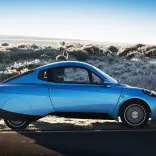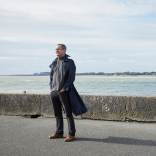Think global, act local. It’s a principle that Dan McCallum and Emily Hinshelwood took to heart when they founded Awel Aman Tawe in 1998. Their idea was to develop a community wind farm for the Upper Amman and Swansea Valleys, generating clean energy and using the proceeds to fund a range of positive initiatives in the former coal-mining area.
Emily says: ‘Wind is a local resource, and our idea was to capture that for the benefit of the community, while helping to fulfil our global responsibility to tackle climate change. We wanted to get involved in job creation, retaining wealth in the Welsh economy, and engaging people through education and the arts.’
Today, the charity oversees two co-operatives dedicated to generating sustainable energy. With its two wind turbines at Mynydd y Gwrhyd, around 20 miles north of Swansea, Awel Co-op produces enough power to supply more than 2,500 homes. It has been joined by Egni Co-op, Wales’ first rooftop solar power co-operative, and now the largest of its kind in the UK.
The projects enjoy strong support in the community. More than 80 local organisations belong to the Awel and Egni Co-ops, including schools, neighbourhood centres and sports clubs, which together own more than £100,000 in shares. In return for their investment, each receives a sustainable income.
Further energy projects are in the pipeline. Awel Aman Tawe is working with two local partners – Neath Port Talbot Council for Voluntary Service (NPTCVS) and Bridgend Association of Voluntary Organisations (BAVO) – to secure a co-op stake in Y Bryn and Mynydd Fforch Dwm, two proposed onshore wind farms near the town of Port Talbot that, together, could deliver up to 30 times the energy of the original Awel development.
The profits delivered by the co-operatives are put to good use. The charity is committed to raising awareness of climate change and sustainability issues, employing a full-time education officer who works with more than 40 schools across South Wales. Awel Aman Tawe is also involved in community transport, operating two electric vehicles to help vulnerable people access services and support.
It is also converting a former primary school into Hwb y Gors, a low-carbon enterprise, arts and education centre in Cwmgors – a village within walking distance of the Awel Co-op wind turbines. The building will house a café, communal studios and offices, education facilities and a community garden. It will also provide a new base for the community transport scheme.
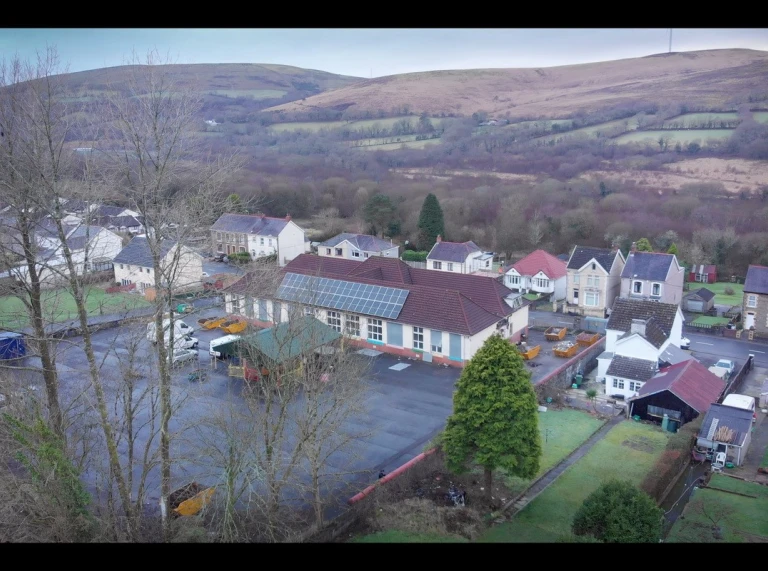
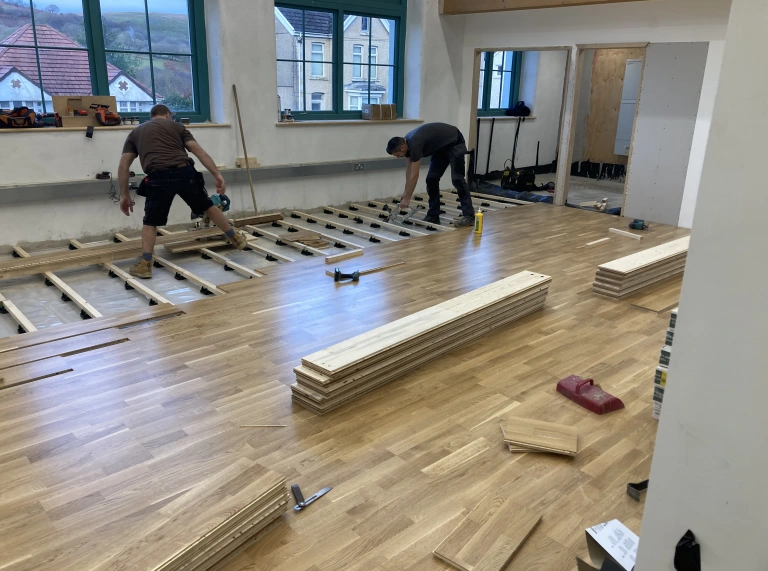
Overcoming the challenges
Establishing the original wind farm was far from plain sailing for Emily, Dan and their colleagues. Their planning application was turned down three times, and the charity lost two common land applications, a public enquiry and a judicial review before approval was granted. After 18 years, the turbines were finally commissioned in January 2017.
‘Seeing the turbines on the mountain still moves us,’ says Dan. ‘It has been a long struggle: we see it as our life’s work. Some people looked at what we were doing and felt that community groups were really slow to achieve anything. But the truth is, commercial wind power projects face the same challenges, and can also take years and years.’
With financing from the Welsh Government, Triodos Bank and the sale of community shares, the project was placed on a sound footing. The wind farm now generates 4.7MW of power, providing an annual turnover of around £1.4 million. From this, the co-operative feeds back a substantial surplus to the parent charity: around £156,000 in 2021.
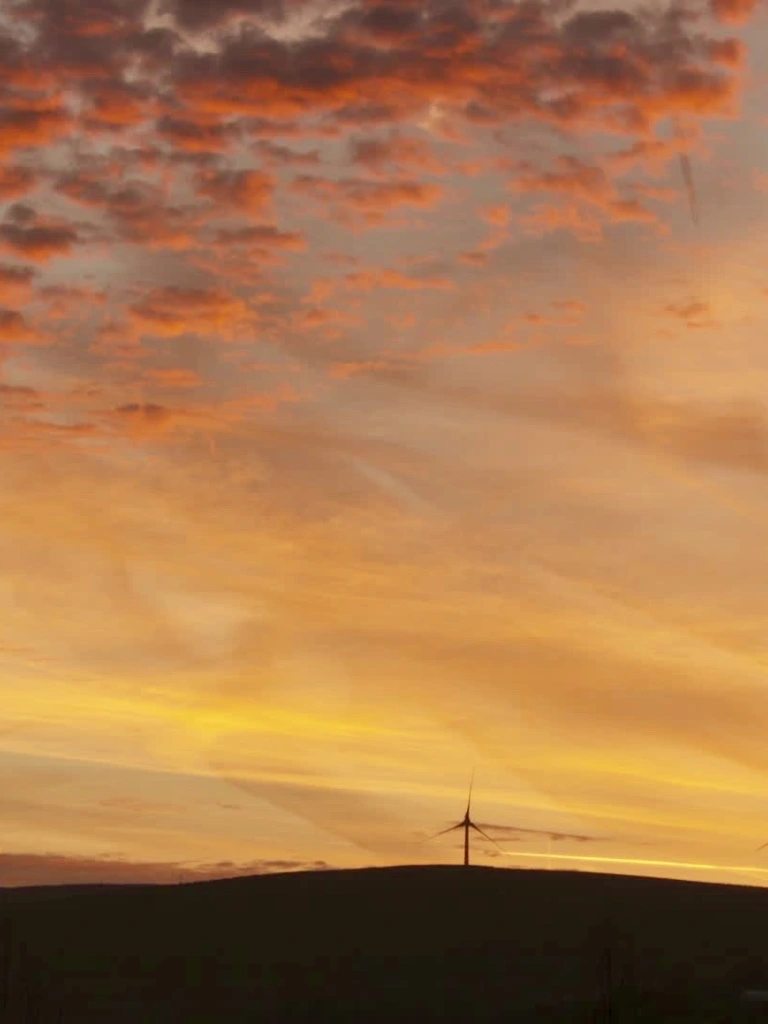
Egni Co-op, by contrast, proved to be a rapid success. The project was financed through a £5 million community share offer, loans from the Development Bank of Wales (DBW) and a Welsh Government Energy Service grant. ‘It’s now the largest rooftop solar co-op in the UK, and that happened really quickly,’ says Dan. ‘I think it proved to people that community organisations can act at speed and at scale.’
The co-operative currently has 5MWp of capacity, from solar panels installed at nearly 100 locations in Wales. With an annual turnover of £800,000, Egni saves its sites more than £312,000 per year in electricity costs, preventing the release of 1,000 tonnes of carbon emissions. All its surplus goes into energy education projects in Welsh schools, in partnership with the charity Energy Sparks.
A new hub for the community
When it opens its doors, Hwb y Gors will serve both as a valuable community asset for Cwmgors and new headquarters for the charity. Emily says: ‘We’re glad to be repurposing the old school, because it’s a much-loved building. Nearly everyone in the village attended that school, and it would have been knocked down if we hadn’t bought it.’
The conversion has been funded by £180,000 in community shares, £50,000 of donations, a £300,000 loan from the Welsh Council for Voluntary Action, plus £1.9 million in grants – from Awel Aman Tawe itself, and from the Welsh Government, the National Lottery, the Heritage Lottery Fund, Neath Port Talbot Council’s Shared Prosperity Fund, and a range of other charitable foundations.
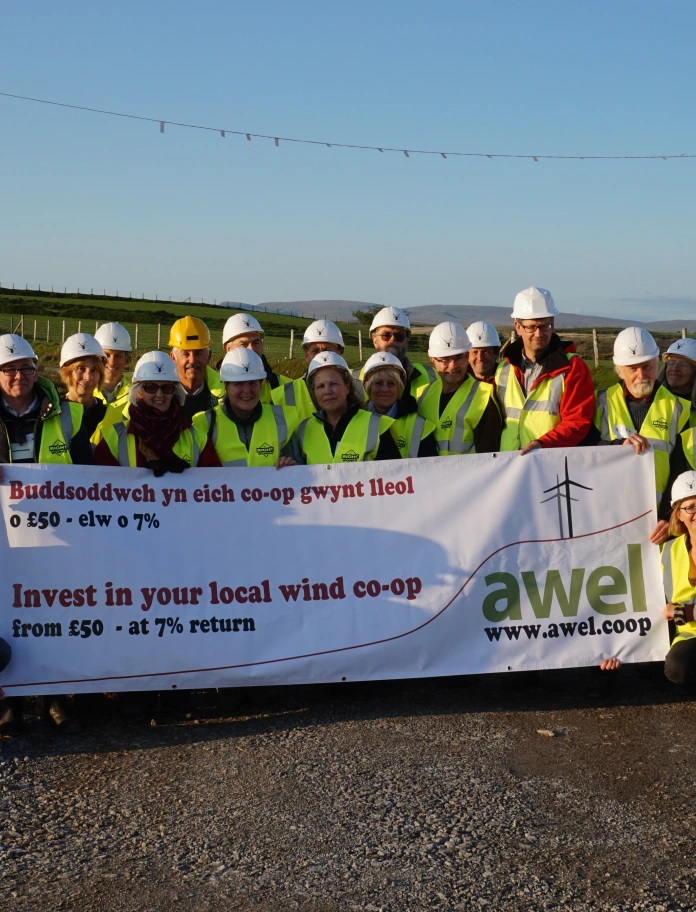
The refit has followed the organisation’s guiding principles of community involvement and good environmental practice. ‘Local people have helped to make 60 stained-glass windows, working with an artist,’ says Emily. ‘They look absolutely stunning. We’ve thought about the long-term impacts of the materials used in the refurbishment, such as using natural cork boards for insulation. And we’ve installed rooftop solar and a ground-source heat pump.’
Looking beyond this flagship project [the new hub], the charity will be aiming to ramp up its generating capacity. Dan says: ‘We want to install another megawatt of rooftop solar over the next 12 months with Egni, and we’ll keep pushing ahead with the plans for Y Bryn and Mynydd Fforch Dwm wind farms.’
Emily adds: ‘It’s not just about us. We want other groups to work with commercial developers to develop co-operative stakes in sustainable energy projects – and Community Energy Wales, the national umbrella organisation, is working on shared-ownership schemes. There are a lot of inter-relationships, which makes for a more robust Wales. It’s far healthier than everyone working for themselves.’
In other words, a future that involves providing more power to the people. Whether that’s from solar panels, wind turbines or a reshaping of the conventional energy supply model.



